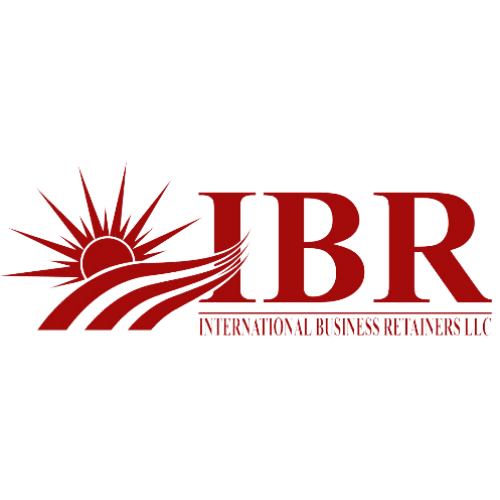
How to Maintain Books of Accounts in UAE by Businesses?
How to Maintain Books of Accounts in UAE by Businesses?
Maintaining accurate and compliant books of accounts is not only required by law, but it is also the cornerstone of sound financial management, promoting transparency, and facilitating informed decision-making. Whether you are an established business in Abu Dhabi or a budding startup in Dubai, it is imperative that you follow and abide by the UAE’s accounting standards.
This blog will walk you through the essentials of maintaining books of accounts in the UAE, ensuring your company stays within the law and prospers in the cutthroat market.
1. Expanding on the Legal Framework
The 2022 Federal Decree-Law No. (47) on Corporate Tax:
- Creating a transparent audit trail is more important than merely filing taxes. Businesses are required by law to maintain records that fairly represent their financial performance. This comprises thorough records of earnings, outlays, assets, and obligations.
- Multinational corporations must have transfer pricing documentation. This entails providing evidence that connected parties conduct business at arm’s length.
- Tax loss carry-forwards are likewise covered by the law, and any claims must be backed up by thorough evidence.
Federal Law No. (2) of 2015 (Commercial Companies):
- This law specifies the requirements for preparing financial statements, including balance sheets, income statements, and cash flow statements.
- It also addresses the role of auditors and the requirements for conducting audits.
- Specific types of companies, such as public joint stock companies, have more stringent reporting requirements.
The VAT Law:
- Gaining an understanding of the subtleties of input VAT recovery is crucial. Companies must make sure they meet the requirements and keep thorough records of all qualifying input VAT.
- For VAT compliance, export and import transactions must be properly documented.
- All necessary details, including the date of issuance, the VAT amount, and the TRNs of the supplier and the customer, must be included on tax invoices.
IFRS:
- By offering a uniform framework for financial reporting, IFRS improves transparency and comparability.
- IFRS implementation can be challenging and necessitates a deep comprehension of the standards and how they are used.
- Examine how IFRS will affect important areas like financial instrument valuation, leasing accounting, and revenue recognition.
Economic Substance Regulations (ESR):
- ESR aims to stop tax evasion by making sure companies engaged in pertinent operations are actually present in the UAE economically.
- Demonstrating economic substance requires keeping thorough records of key revenue-generating operations, employees, and assets.
- ESR reporting necessitates thorough and precise documentation.
2. Deep Dive into Essential Books of Accounts
The general ledger
- All financial transactions, arranged by account, are centrally stored here.
- One essential element is the chart of accounts. It should be made to support accurate reporting and take into account the particular requirements of the company.
- To find and fix problems, ledger accounts must be regularly balanced.
Purchase and Sales Ledgers:
- These ledgers offer comprehensive details regarding transactions with suppliers and customers, respectively.
- Aging reports are useful resources for payables and receivables management.
- To reduce the danger of bad debts, credit management processes must to be put into place.
Cash Book and Bank Reconciliation:
- For a business to survive, accurate financial management is essential.
- Frequent bank reconciliations aid in fraud prevention and discrepancy identification.
- It is crucial to understand the many kinds of bank accounts and their characteristics.
Register of Fixed Assets:
- Each fixed asset’s acquisition cost, depreciation schedule, and useful life should all be covered in full in this register.
- It is advised to physically verify fixed assets on a regular basis.
- Proper accounting is crucial when disposing of assets.
Inventory Records:
- For companies that sell goods, inventory management is essential.
- It’s crucial to select the right inventory valuation technique, such as weighted average or FIFO.
Stockouts and losses can be avoided by putting inventory control processes into place.
Payroll Documents:
- It is crucial to adhere to UAE labor rules.
- It is essential to calculate salaries, wages, and other benefits accurately.
- It’s critical to keep track of employee leave, overtime, and other deductions.
VAT Documents:
- Compliance requires keeping thorough records of every VAT transaction.
- It is essential to comprehend the various kinds of VAT rates and exemptions.
- It is imperative that VAT returns and payments be properly documented.
Documentation Support:
- These records offer proof of monetary exchanges.
- Records must be kept up to date, accessible, and arranged for audits and investigations.
- More and more documents are being archived digitally.
3. Clarifying Important Points
Internal Controls:
- Three crucial internal controls are authorization, reconciliation, and separation of roles.
- The implementation of strong internal controls aids in the prevention of errors and fraud.
- Internal controls must be reviewed and tested on a regular basis.
Security of Data:
- Safeguarding private financial information is essential.
- It is crucial to put data security safeguards like backups, encryption, and access limits into place.
- It’s critical to adhere to data privacy laws.
4. Comparing In-House and Outsourcing
Factors to Consider When Outsourcing:
- Industry-specific knowledge: Outsourcing companies may have specialized knowledge of particular sectors.
- Cost predictability: The expenses associated with outsourcing may be predictable.
- Concentrate on key competencies: Businesses can concentrate on their core competencies through outsourcing.
In-House Considerations:
- Enhanced authority over information and procedures.
- Quicker answers to questions.
- The potential for long-term cost savings.
Why choose IBR Group Accountants?
Accounting, auditing and tax consulting are just a few of the many services provided by IBR GROUP ACCOUNTANTS, a financial consultancy firm located in Dubai. In Dubai and the rest of the United Arab Emirates, we have been offering the best audit services. You can benefit from our audit services in Dubai by receiving clear information about all of your business transactions and an accurate report on risk assessment, which will empower your company and improve its reputation.
In Dubai and the United Arab Emirates, IBR GROUP ACCOUNTANTS provides a broad range of business services, including due diligence, CFO, VAT consulting, and many more. Please contact us if you have any questions. Our professionals are here to take your call and respond to your questions.
